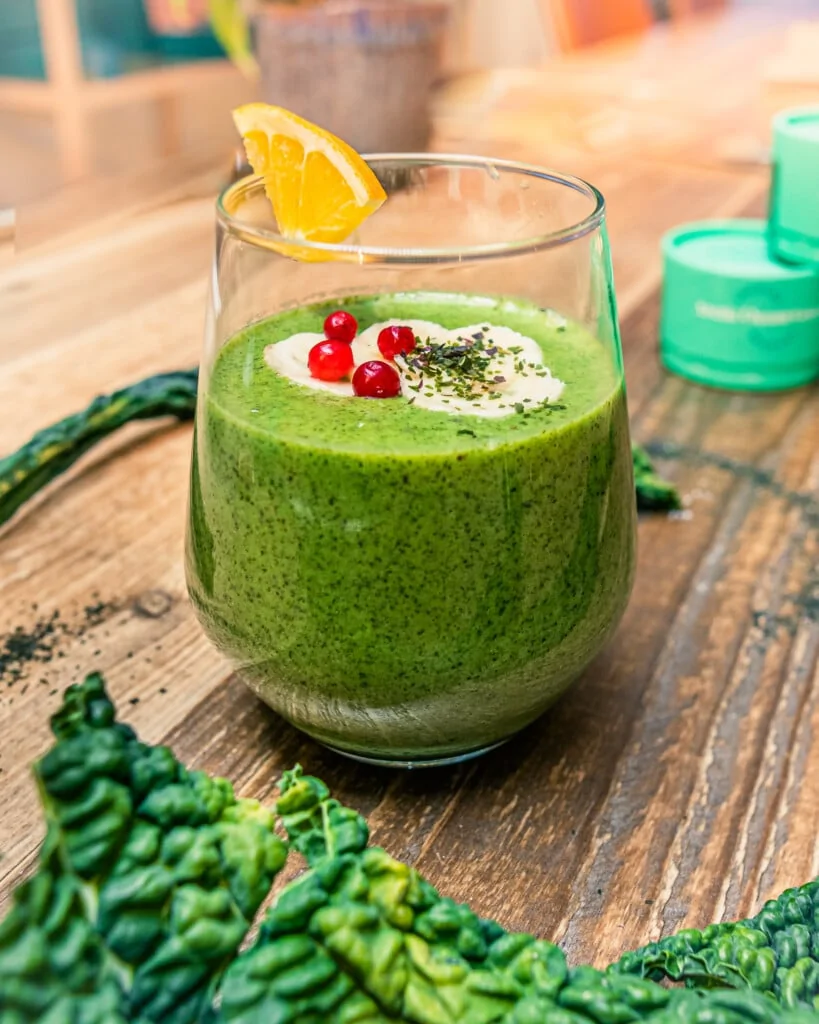Can seaweed boost your detox?
It’s that time of year again – January detox! Christmas is over, and many of us will be making drastic changes to our diets and lifestyles. Although January is a great time to be mindful about our food choices, the abundance of information can become overwhelming.
Many companies claim to have the key ingredient that will help you with weight loss, cellulite, clear skin, better sleep, a stronger immune system and a whole host of other attractive benefits. The secret is, there is no magic bullet – not even seaweed! We humans need a balanced lifestyle with a varied, nutrient-rich diet. In this article we’ll go over why detoxing is a myth, what you can do to be healthy, and what seaweed can bring to the table.




What is a detox?
A detox is a set of dietary and/or lifestyle restrictions designed to protect the body from environmental toxins, and allow it time to clear its existing toxin build-up.
Fans believe we need a break from the overload of toxins that engulf our everyday lives and that includes processed and junk food, alcohol, caffeine, sugar as well as cigarette smoke and pollution. The reason typically given for a detox is to support the body’s perceived inability to manage this overload, which detox supporters suggest might otherwise lead to weight gain, cellulite, bloating, fatigue and ill health.
https://www.bbcgoodfood.com/howto/guide/what-detox-diet
The truth is that ‘detox’ has become a bit of a buzzword in the dieting world. The human body is highly effective at detoxing itself, and if there was any sort of toxic build-up within the body, we would simply become ill. The idea that you need to somehow flush toxins from your body – especially after a prolonged period of indulgence – is not proven by science.
That being said, it’s not a bad thing to be mindful of what we are putting into our bodies! Switching out processed foods for nutrient-rich whole foods like fruit and vegetables gives your body the vitamins, minerals and antioxidants it needs to do its job effectively.
Can seaweed help you detox?
Seaweed is a powerful tool in the cook’s arsenal, and by taking control of what you cook, you take control of what you eat. Seaweed is extremely nutrient-dense, and is rich in organic glutamates, which trigger the umami reaction in our tastebuds. This means that using seaweed in your cooking leads to satisfying meals that are nutritionally complete, and that leave you feeling fuller for longer.
A successful diet is balanced and varied. We’re not claiming that seaweed is a magical cure-all ingredient, but it is easy to cook with, it tastes great, and it’s good for you. The inclusion of seaweed in a healthy, well-rounded diet can easily introduce nutrients that may otherwise be hard to come by, and flavours that are highly sought after.
Health benefits of eating seaweed
We often say that seaweed is the most nutrient dense plant on the planet, with over 10 times more nutrients per kg than any land plant. But what nutrients exactly does seaweed contain, and what do they do?
- Vitamin A (important for vision and growth)
- Vitamin B (boosts enzyme activity in the cells)
- Vitamin B6 (important for healthy brain activity and nervous system function)
- Vitamin B12 (necessary for blood cell and DNA formation)
- Vitamin C (aids healthy blood cells and bone development)
- Vitamin K (helps with blood clotting and the building of healthy bone tissue)
- Chlorophyll (a natural antioxidant)
- Iodine (necessary for the production of thyroid hormones)
- Iron (a major component of the haemoglobin that carries oxygen around the body via red blood cells)
- Fucoxanthin (thought to help prevent breast and colon cancer, obesity and diabetes)
- Nickel (promotes hormonal activity and stimulates metabolism)
- Zinc (for building protein and healing damaged tissue)
- Copper (helps to create and maintain connective tissues and blood vessels)
- Phosphorous (for growth, maintenance and repair of cell tissue)
- DHA fatty acids (essential for healthy brain function)
- Magnesium (supports muscle and nerve function and energy production)
- Potassium (necessary for proper cell hydration)
- Calcium (for healthy bones and teeth)
- Protein (for cell repair and regeneration)
- Folate (helps the body create healthy red blood cells)
- Fluoride (protects tooth enamel from oral bacteria)
- Fibre (linked to a lower risk of heart disease, stroke, type 2 diabetes and bowel cancer)
- Alginic acid (effective prevention of acid reflux in the oesophagus)
- Carotene (an antioxidant that helps protect against free radicals)
- Laminaran (an immune system booster with anti-tumour properties)
- Mannitol (a diuretic that helps the body flush out excess salt)
- Niacin (helps the body convert food into energy)

The exact nutritional content of seaweed depends on its species, the season in which it was harvested and its location. Seaweed is highly effective at absorbing trace minerals from its surroundings, which is why it’s important to source your edible seaweed from places where you know the water quality to be high. You can read more about where we harvest our seaweed here.
So to sum it up – no single ingredient can detox a human body. In fact, the human body is highly effective at detoxing itself! By supporting our bodies with a nutrient-rich diet – in which seaweed can play an important part – we can allow our system to do what it does best. Team this with an active lifestyle and a sensible moderation of treats, and you can’t go too far wrong!